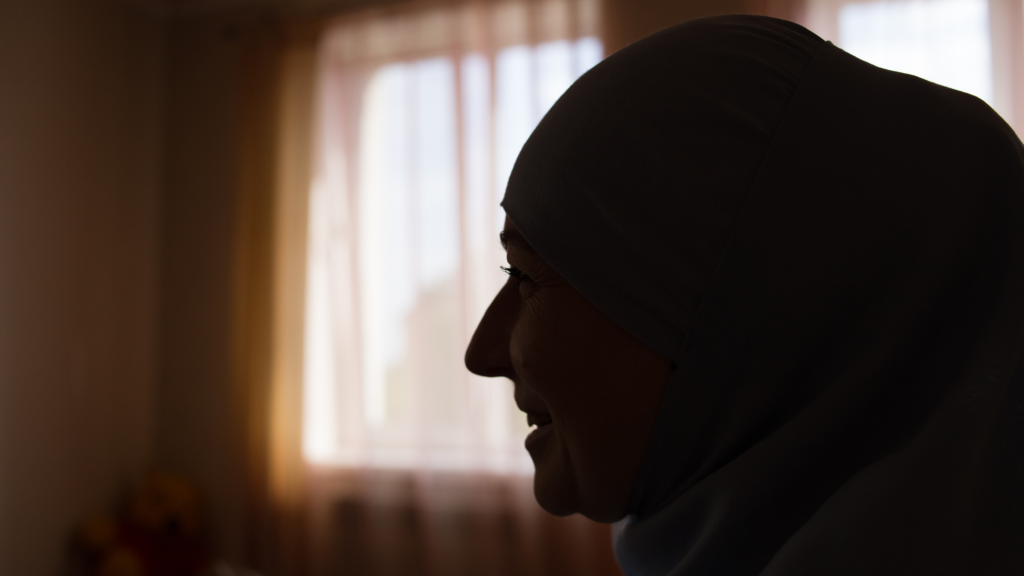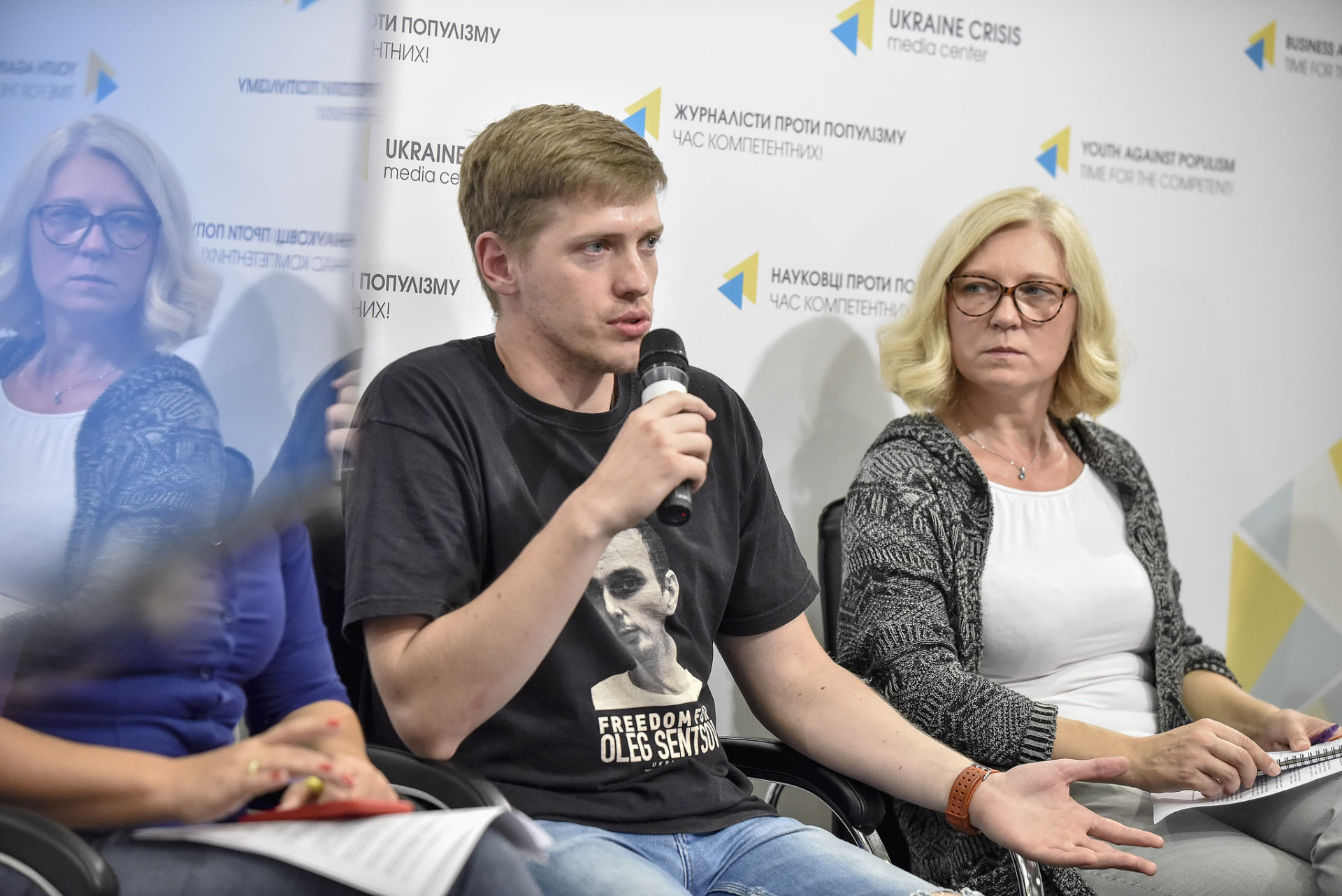Aiming to explore first-hand and document the human rights situation in Crimea, representatives of three Human Rights Houses visited the occupied peninsula from 14-18 September 2018.
The mission included human rights defenders from the Barys Zvozskau Belarusian Human Rights House, Educational Human Rights House Chernihiv, and Human Rights House Azerbaijan.
The monitoring focused on the problems with regard to the freedoms of expression, assembly, and association in Crimea, as well as conditions for local human rights defenders and lawyers to work and to participate in public life. It was a unique opportunity to gather verified information to assess the human rights situation on the peninsula.
The visit was organised by the Human Rights Information Center, member of Human Rights House Crimea, and supported by Human Rights House Foundation (Oslo, Norway) and People in Need (Prague, Czech Republic).
“For more than four years of occupation, Crimea has become a “grey zone”, a territory that international organisations with a mandate to protect human rights (UN, OSCE, Council of Europe) cannot access. During the years of occupation, only two representatives of international organisations have visited Crimea: the Council of Europe Commissioner for Human Rights Niels Muižnieks (September 2014) and Special Envoy of the Council of Europe Secretary General Gerard Studman (January 2016),” said Darya Svyrydova, lawyer of the Ukrainian Helsinki Human Rights Union (member of the Educational Human Rights House Chernihiv).
“The UN General Assembly has already adopted several resolutions calling for proper and unhindered access for international human rights monitoring missions and human rights non-governmental organisations to Crimea. It is necessary to proceed to the elaboration of real mechanisms for implementation of these recommendations,” continued Svyrydova.
She added that it is important that human rights NGOs continue to make visits to Crimea, and that the visit of the Human Rights Houses to Crimea is particularly significant in this regard.
According to Tetiana Pechonchyk, the head of the Human Rights Information Center (member of Human Rights House Crimea), the visit of the Human Rights Houses to Crimea took place in accordance with Ukrainian legislation: the group entered the peninsula from mainland Ukraine, and the non-Ukrainians taking part in mission – citizens of Belarus, Azerbaijan and Kazakhstan – received the necessary permits from the State Migration Service of Ukraine.
“The mission entered Crimea overtly, declaring the human rights purpose of the visit and in accordance with the procedure stipulated in Ukraine. One of the purposes of the visit was to test access to the peninsula for foreign and Ukrainian human rights defenders from both the Ukrainian and the Russian sides. In this regard, such a mission is important for testing the procedure for access of international human rights missions to the occupied peninsula and for making appropriate recommendations with regard to simplifying such access,” she said.
After stating the aims of the mission at the administrative border, the representatives were allowed to enter Crimea. They also did not experience any restrictions when leaving the peninsula. During the mission, the representatives of Human Rights Houses met with victims of human rights violations, relatives of political prisoners, lawyers, journalists, and representatives of civic initiatives.
“The level of political repressions unleashed in Crimea in 2014 has not decreased, though the forms and types of pressure and persecution have changed,” said mission member Tatsiana Reviaka, a representative of the Barys Zvozskau Belarusian Human Rights House.
In particular, she said the enforced abductions of Crimean Tatar and Ukrainian activists in 2014-2015 are not being investigated, and the criminal prosecution and active application of Russian anti-terrorist and anti-extremist legislation are used to suppress dissent.
“Participants in peaceful assemblies experience administrative and economic persecution in the form of arrests and large fines. Families and relatives of political prisoners live under constant threat to their safety and health. The trumped-up criminal cases are initiated against them, they experience difficulties with work (they are dismissed and then cannot find a new job), their children are bullied in schools, they are threatened with deprivation of parental rights,” the human rights activist said.
Another mission member, Kyrylo Yekymov, a representative of the Educational Human Rights House Chernihiv, pointed to the coherence of actions of the local law enforcement agencies and media, indicating that raids on homes, arrests, and court hearings are of a demonstrational nature, and the actions of law enforcement agencies are accompanied with propaganda campaigns.
“A repressive system has been formed that includes many state bodies, including the judiciary, the prosecutor’s office, law enforcement agencies, the emergency service, the educational supervisory authorities,” he said.
Together with the Human Rights Houses and organisations involved in the mission, Human Rights House Foundation and People In Need will use the information documented to inform the international community about the human rights situation in Crimea. It is planned to prepare a follow-up report in October 2018, which will be presented at international organisations and in certain countries.
“It is essential that the human rights situation in Crimea is known outside the Peninsula. Through this visit, experienced human rights defenders from three Human Rights Houses have helped to ensure the facts on the ground are known and the voices of local civil society are heard. Solidarity and accurate reporting are key in bringing positive change for Crimeans,” said Ane Tusvik Bonde, Senior Adviser at Human Rights House Foundation.
“Regionally and internationally, we look forward to raising the key issues identified by the monitoring visit, in cooperation with Human Rights Houses,” she added.
—
Crimea: Breaking the Wall of Silence

Discover the findings of the Mission to Crimea by three Human Rights Houses, in the report Crimea: Breaking the Wall of Silence.





